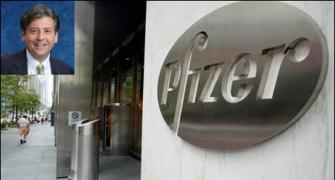 Frequent drug recalls from the US in the recent past by Indian companies have raised concern among industry experts as well as the investor fraternity.
Frequent drug recalls from the US in the recent past by Indian companies have raised concern among industry experts as well as the investor fraternity.
Some of the major pharmaceutical companies such as Ranbaxy Laboratories Ltd, Glenmark Pharmaceuticals Ltd, Dr Reddy’s Laboratories Ltd and Sun Pharmaceutical Industries Ltd have recalled their products from the world’s largest drug market, the US, in the past seven months, according to data available on US Food and Drugs Administration’s website.
Besides, a few foreign players had to recall some of their products, which were outsourced to Indian companies for manufacturing.
Recently, Dr Reddy’s recalled its anti-depression drug, Citalopram, from the US following complaints of a strong odour.
Mumbai-based Glenmark also conducted a retail or pharmacy level recall of its allergy and asthma drug, Montelukast sodium tablets, 10 mg, in February.
“The recall has been initiated based on multiple complaints received from a number of pharmacists and consumers.
"They have reported they detect an off-odour, described as moldy, musty or fishy in nature. . . After initial investigation, the source for the moldy or musty odour has been identified as the presence of trace levels of Tribromoanisole and Trichloroanisole,” Glenmark said after the recall.
Not long ago in November last year, Ranbaxy had recalled its major revenue churning generic version of Lipitor from the US after it suspected the presence of tiny glass particles in some of the batches.
While
While some say a certain amount of recall is part of the pharma business, many feel such a trend may lead to concerns over quality of manufacturing in Indian facilities.
“Recalls happen, but an increasing and frequent trend could indicate towards concerns in manufacturing, which is not good for the industry at large.
It’s also significant to note that US FDA is becoming more stringent, and is tightening its quality norms, particularly for generics, because the competition is increasing,” says an industry expert, requesting anonymity.
Another analyst, with a domestic brokerage, adds: “As the penetration of generics is increasing, the domestic players need to be more cautious about their quality of manufacturing because the regulator is expected to tighten its scrutiny.
"Repeated recalls may not just impact the company’s revenues but also the overall sentiment of investors.”
The analyst also did not want to be named.
Last year, even some of the multinational companies such as Pfizer Inc and Teva Pharmaceutical Industries Ltd had to recall some of their products, which were outsourced to Indian companies for manufacturing.
However, some experts are also of the opinion that drug recalls are usual in pharmaceutical business as long as they are not of serious order. Most of the recalls in the recent past have been of class III and IV, which are not considered very serious. However, some like that of Ranbaxy and Dr Reddy’s were of class II.










